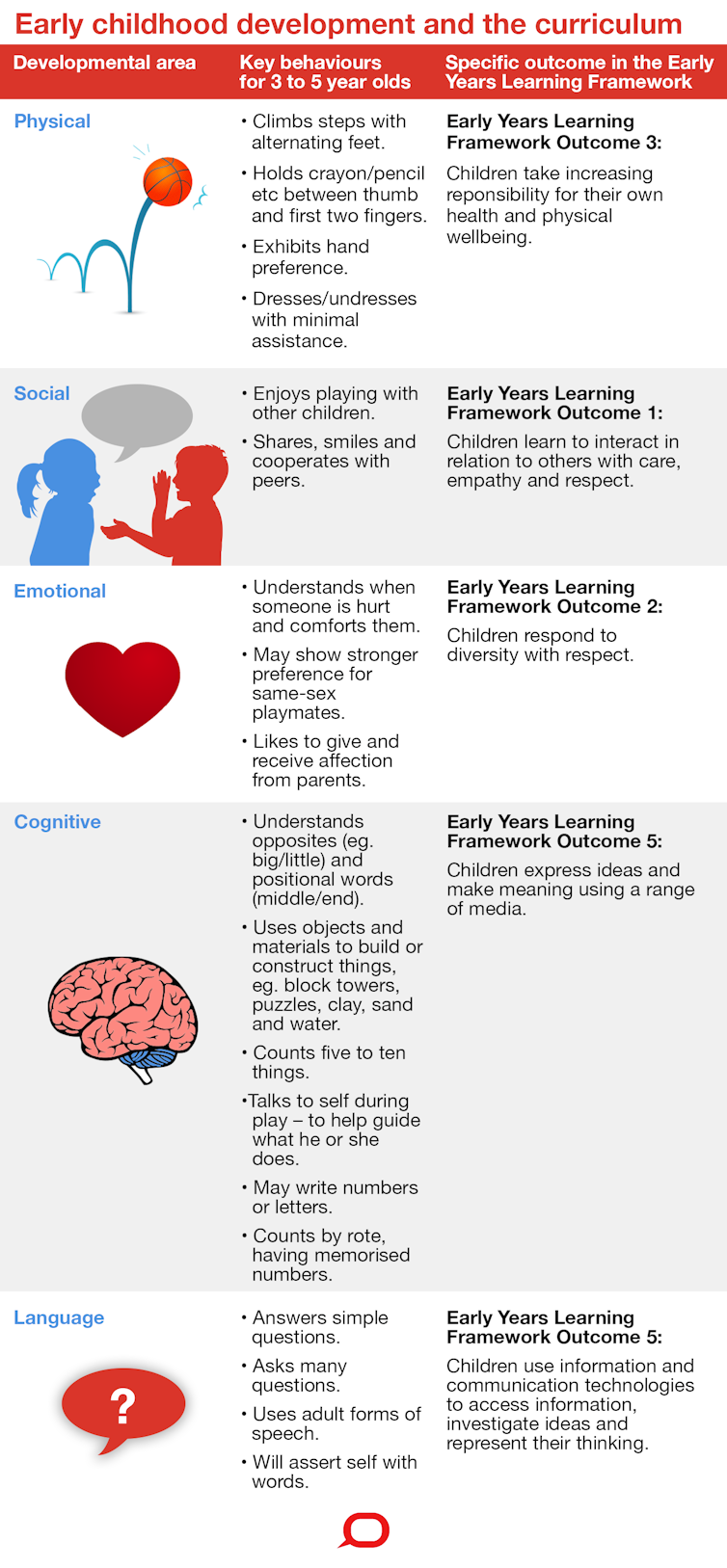What should parents expect from early childhood education?

Parents often have different expectations for their three- to five-year-old children when they attend an early learning centre. Some parents expect their child to engage in academic learning activities or “real learning”. Academic activities are associated with formal school-based learning such as writing, reading and knowing their numbers.
Parents are reported to feel concerned if they visit their friend’s home and see their friend’s child brings home worksheets (for example dot-to-dot of their name, colouring in of Easter eggs, or other adult-directed products) from their early childhood centre. They may worry their child is being left behind because their child is “only playing” and not engaging in real learning.
Other parents focus on their child being safe and secure in a stimulating environment where children make choices about what they will play. Such learning environments are supported by educators who are responsive to the child, and socially construct the child’s play.
The tension lies between teacher-directed activities where children are perceived to be doing “real learning”, as opposed to children making choices to play according to their interests.
So, what should three- to five-year-olds be learning?
Developmental milestones provided by the Australian Children’s Early Childhood Quality Authority (ACECQA) state:
Children’s learning is ongoing and each child will progress towards the outcomes in different and equally meaningful ways.
This milestones checklist covers five domains of learning, which is linked to the curriculum and the National Quality Standards:
- physical
- social
- emotional
- cognitive
- language development.
The checklist indicates what a child should be able to do by a certain age, and this is linked to the early childhood education curriculum.

Research demonstrates children’s learning achievements are greater from play-based programs, which include activities such as block building, compared to early childhood programs that have an academic focus.
The early childhood education curriculum emphasises the importance of play-based learning and research demonstrates children’s learning achievements are greater from play-based programs compared to early childhood programs that have an academic focus.
When to worry
According to the developmental milestones, parents should seek advice from a professional if their three- to five-year-old child:
- is not understood by others
- has speech fluency problems or stammering
- is not playing with other children
- is not able to have a conversation
- is not able to go to the toilet or wash him/herself.

Children aged three to five should be able to build a tower with eight to ten blocks.
Parent-teacher relationships are important
Educators need to be able to explain their approach to children’s learning to parents at the outset of the child/family’s admission to the centre and reinforce this as children learn and develop.
The curriculum and the National Quality Standards both focus on educators having “partnerships with families”. But if there is disagreement about what and how children should be learning, a partnership between the parents and teachers won’t develop and endure.
![]() Parents need to be continuously informed about the learning program in the centre. There needs to be alignment between parents’ expectation of what their child will learn in an early childhood centre, with the learning program provided, and the play-based approach a good one for the children.
Parents need to be continuously informed about the learning program in the centre. There needs to be alignment between parents’ expectation of what their child will learn in an early childhood centre, with the learning program provided, and the play-based approach a good one for the children.
This article was originally published on The Conversation. Read the original article.
Dr. Wendy Boyd is a Senior Lecturer at the School of Education of Southern Cross University. She taught in the early learning sector for 25 years before completing her PhD. in 2011 and advocates for high standards of Early Childhood Education to benefit children and families.













